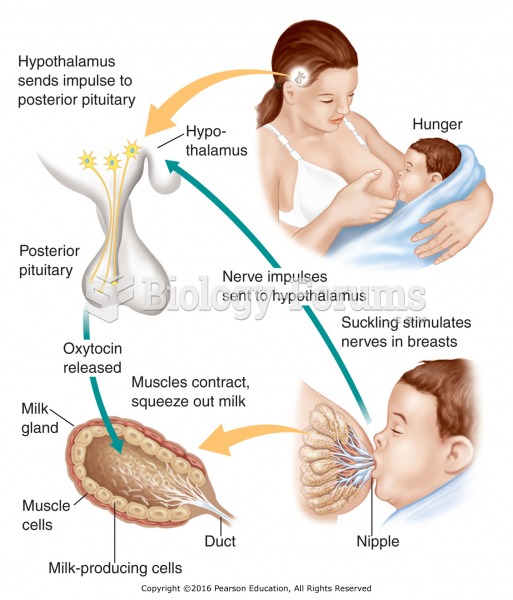|
|
|
The average adult has about 21 square feet of skin.
The human body's pharmacokinetics are quite varied. Our hair holds onto drugs longer than our urine, blood, or saliva. For example, alcohol can be detected in the hair for up to 90 days after it was consumed. The same is true for marijuana, cocaine, ecstasy, heroin, methamphetamine, and nicotine.
Between 1999 and 2012, American adults with high total cholesterol decreased from 18.3% to 12.9%
More than nineteen million Americans carry the factor V gene that causes blood clots, pulmonary embolism, and heart disease.
When blood is deoxygenated and flowing back to the heart through the veins, it is dark reddish-blue in color. Blood in the arteries that is oxygenated and flowing out to the body is bright red. Whereas arterial blood comes out in spurts, venous blood flows.





